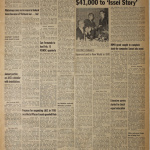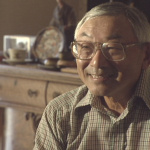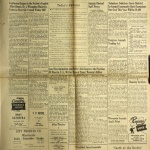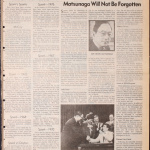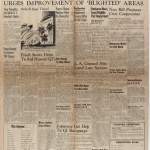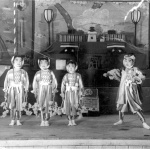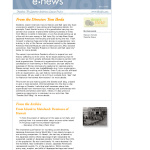Milton Murayama
| Name | Milton Murayama |
|---|---|
| Born | April 10 1923 |
| Birth Location | Lāhainā, Maui, Hawai'i |
| Generational Identifier |
Milton Murayama is Japanese American short story writer, playwright, and novelist of books including All I Asking for Is My Body , Five Years on a Rock , and Plantation Boy that capture the different perspective of the Oyama family as they struggle to reconcile their Japanese heritage with their experiences growing up in Hawai'i. Born on April 10, 1923, in Lāhainā, Maui, to Japanese immigrants from Kyūshū, Murayama grew up in a plantation camp in Pu'ukoli'i, that provided the setting for many of his early works. Murayama graduated from Lahainaluna in 1941 and attended the University of Hawai'i until the bombing of Pearl Harbor after which he served in the Territorial Guard . Although Murayama and other Japanese Americans were eventually discharged from the Territorial Guard, Murayama soon volunteered for the Military Intelligence Service (MIS) where he was assigned in the China-Burma-India Theater. In 1946, after facilitating the surrender and repatriation of Japanese troops from Taiwan, Murayama received his B.A. in English and Philosophy from the University of Hawai'i in 1947. Later, he received a Master's Degree in Chinese and Japanese from Columbia University in 1950 under the G.I. Bill .
After his studies at Columbia where he began his career as a creative writer, Murayama lived in Washington D.C. where he worked for the Armed Forced Medical Library from 1952 to 1956. Thereafter, Murayama moved to San Francisco where he worked for the public library and later for the U.S. Customs Office as an import specialist. Murayama continued to write and in 1980 All I Asking for Is My Body won the American Book Award of the Before Columbus Foundation. During this period, Murayama also wrote three plays, Yoshitsune (1977), Althea (1982), and All I Asking for Is My Body (1989). In 1991, Murayama received the Hawai'i Award for Literature and in 1994 the University of Hawai'i Press published Five Years on a Rock and later Plantation Boy in 1998. According to Murayama, he has two motivations in writing. The first, which he calls "history-writing" is driven by his need to "put into record a body of first- and second-hand experiences—growing up on Maui, schooling, working in the canefields, any number of things." His second motivation is that "a theme or story fascinates me," and for Murayama, "writing becomes an act of exploring and discovering, examining new territory, becoming familiar with it, then pushing on." His goal is to illuminate meaning, "breaking through my own ignorance, and good writing means capturing and sharing that surprise and joy of discovery." [1] Murayama lives in San Francisco and continues to write about Hawai'i's people and experiences.
For More Information
Day, A. Grove and Carl Stroven, ed. The Spell of Hawaii . New York: Meredith Press, 1968.
Madsen, Deborah L. Asian American Writers . Detroit: Thomson Gale, 2005.
Murayama, Milton. All I Asking for Is My Body . 1959. San Francisco: Supa Press, 1975. Afterword by Franklin Odo. Honolulu: University of Hawaii Press, 1988.
---. Dying in a Strange Land . Honolulu: University of Hawaii Press, 2008.
---. Five Years on a Rock . Honolulu: University of Hawaii Press, 1994.
---. Plantation Boy . Honolulu: University of Hawaii Press, 1998.
Nelson, Emmanuel S. Asian American Novelists: a Bio-Bibliographical Critical Sourcebook . Westport, Conn.: Greenwood Press, 2000.
Sumida, Stephen H. And the View From the Shore: Literary Traditions of Hawaiʻi . Seattle: University of Washington Press, 1991.
---. Two Novels of Hawaii: Waimea Summer by John Dominis Holt: All I Asking for Is My Body by Milton Murayama: A Critique . Honolulu: Ku Pa'a, Inc., 1989.
Wilson, Rob. "Milton Murayama's Working-Class Diaspora Across the Japanese/Hawaiian Pacific." Postcolonial Studies 11:4 (2008): 475-79.
Footnotes
- ↑ Eric Chock and Jody Manabe ed., Writers of Hawaii: A Focus on Our Literary Heritage (Honolulu: Bamboo Ridge Press, 1981), 59.
Last updated Feb. 26, 2014, 5:34 p.m..

